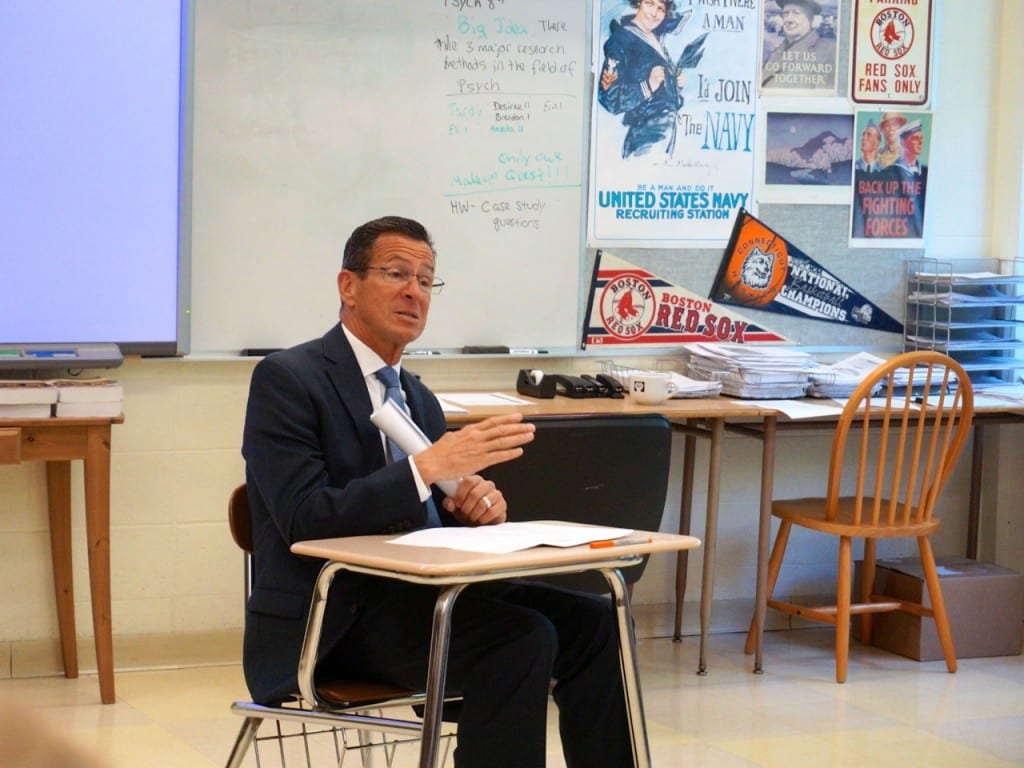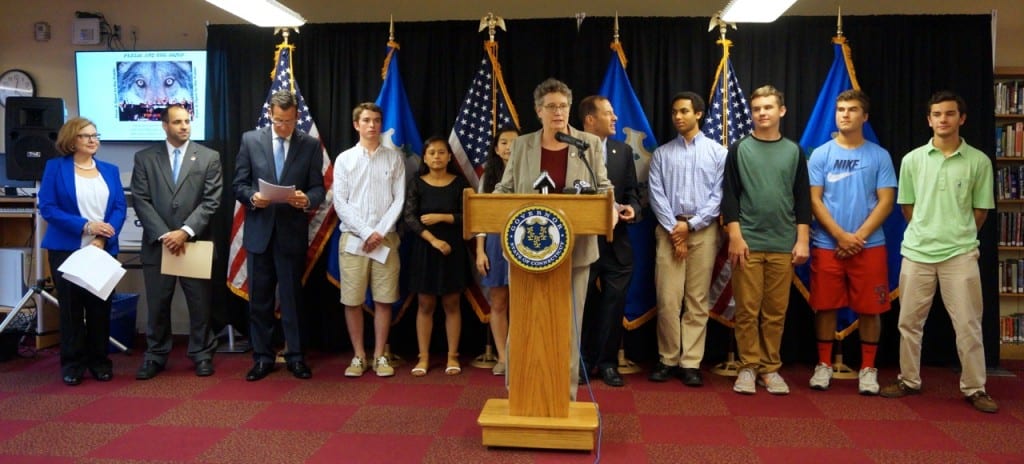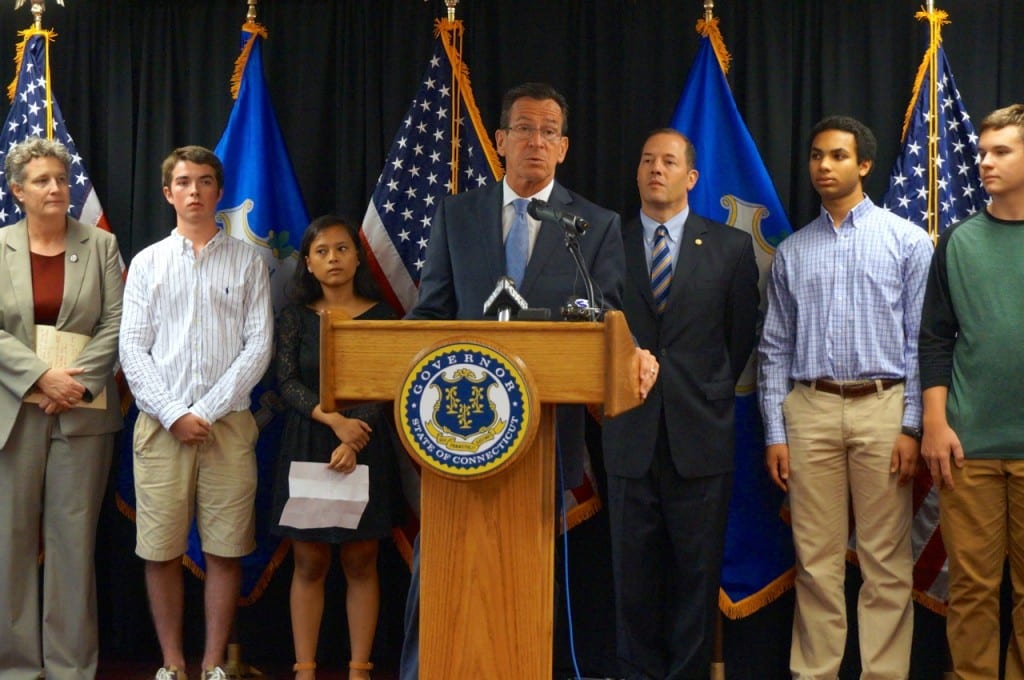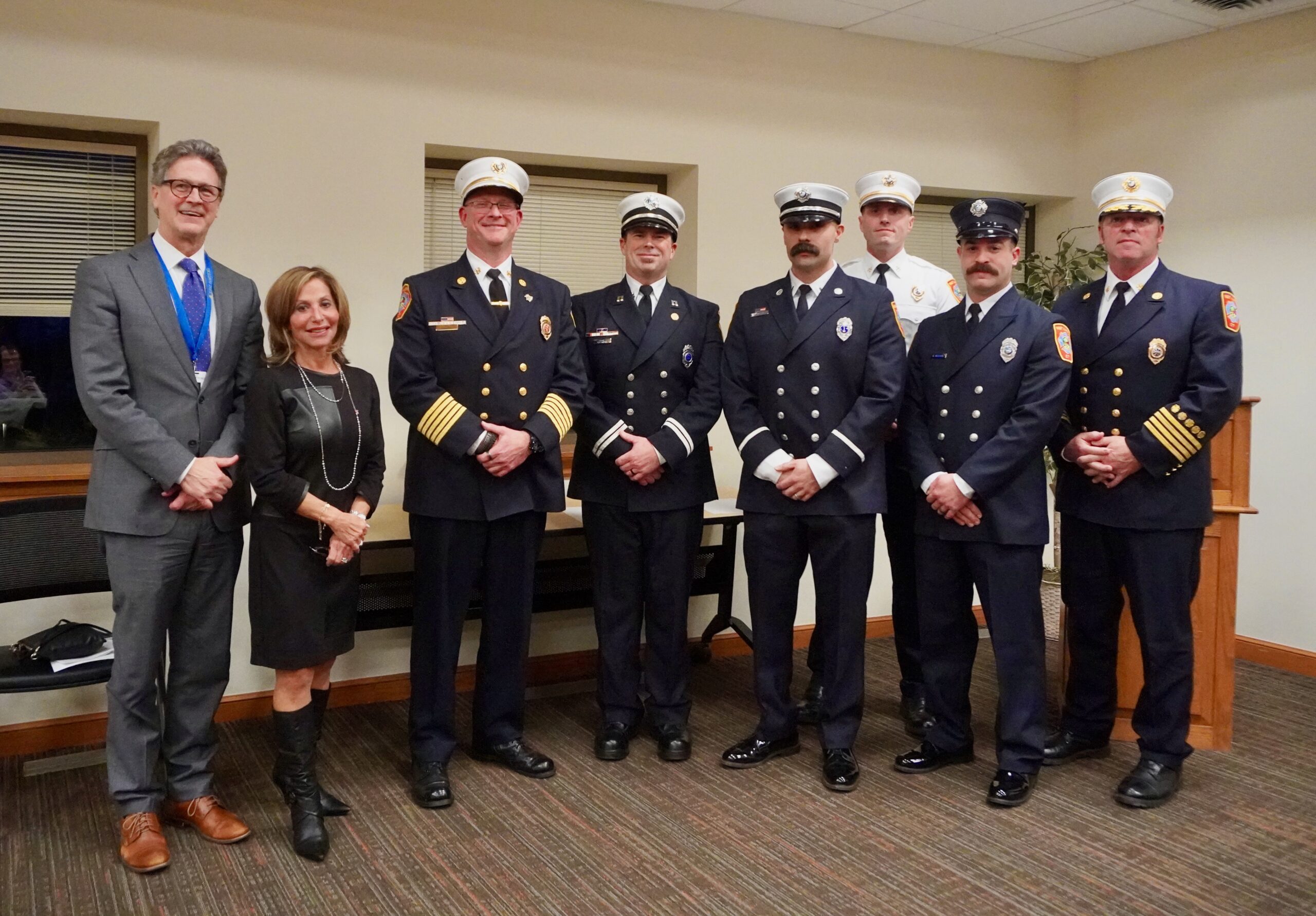Gov. Malloy, State Officials Reaffirm Commitment to Reduce Testing at Visit to Conard

Audio By Carbonatix

Gov. Dannel P. Malloy speaks at the Conard High School library Tuesday. In the background are (from left) State Sen. Beth Bye, Brian Wilson, State Rep. Andy Fleischmann, Anis Ehsani, and Jack Moore.
Gov. Dannel P. Malloy toured West Hartford’s Conard High School and highlighted Connecticut’s plan to replace the Smarter Balanced assessment with the SAT beginning in 2016.

Gov. Dannel P. Malloy sits down with students in Christopher Islaub’s AP U.S. History class. Photo credit: Ronni Newton
By Ronni Newton
Gov. Dannel P. Malloy sat down with Christopher Islaub’s Advanced Placement U.S. History students at West Hartford’s Conard High School Tuesday afternoon and answered a few questions from students before he joined State Department of Education Commissioner Dianna R. Wentzell, State Sen. Beth Bye (D-West Hartford), and State Rep. Andy Fleischmann (D-West Hartford) to highlight Connecticut’s plan to replace the Smarter Balanced Assessment (SBAC) with the newly-redesigned SAT beginning this school year.
Standing in the library surrounded by a group of Conard students as well as Conard Principal Julio Duarte and Superintendent of Schools Tom Moore, Malloy said that the state had filed an application with the U.S. Department of Education long ago to substitute the SAT for the SBAC, recognizing the burden of over-testing on high school juniors. “Especially at a school like this where students are taking so many AP tests,” he told the Conard audience.
Connecticut and New Hampshire are the first states to receive approval from the U.S. Department of Education to use the SAT in lieu of the SBAC as an assessment of high school students.

State Sen. Beth Bye speaks in the Conard High School library highlighting the state’s replacement of the SBAC with SAT for high school juniors. Also at the announcment were (from left) SDE Commissioner Diana Wentzell, Conard Principal Julio Duarte, Gov. Dannel P. Malloy, Conard students Brian Wilson, Mamata Malla, Molly Petrizzo, State Rep. Andrew Fleischmann, Conard students Anis Ehsani, Jack Moore, Tyler Carson, and Henry Fisher. Photo credit: Ronni Newton
Last spring Conard juniors spent at least a portion of 16 of the last 24 days of school being tested – and that does not include SATs and ACTs which are taken on Saturdays. “That’s lost learning time,” Bye said.
Bye said she has received complaints from students and parents about the burden of over-testing. “I believe the changes we have instituted will reduce student stress while still providing them with a proven and valuable college-preparation tool,” she said.
Now that the SAT has been realigned with new curriculum standards, Malloy said that it makes sense to use the test as a substitute. Another benefit is that all students will now have a chance to take the SAT, during the school day, at no cost – levelling the playing field and allowing the entire students population a chance to go to college.

Gov. Dannel P. Malloy speaks at the Conard High School library Tuesday. In the background are (from left) State Sen. Beth Bye, Brian Wilson, State Rep. Andy Fleischmann, Anis Ehsani, and Jack Moore.
“All children deserve a chance to pursue their dreams, go to college, and compete for the best jobs in a global economy. We are no doubt raising a new bar – graduation rates are at record highs while we’re preparing children for the future like never before,” Malloy said.
Wentzell said that tests are an important tool for gauging student’s progress and identifying gaps in learning. “We also know that too much testing can slow down that progress,” she said.
“Replacing the Smarter Balanced assessment with the SAT for 11th graders cuts down on the amount of time students spend taking exams and allows high schools to focus on delivering rigorous academic instruction and preparing young people for college,” Wentzell said.
Fleischmann, who is co-chair of the House’s Education Committee, said he had concern that students were undergoing so much testing that by the time they got to the SBAC, they didn’t take it seriously. “By replacing the 11th Grade SBAC with the new SAT, we not only get rid of a test many students weren’t taking seriously – we also make a college entrance exam free for all families. Students who might not have considered college before will start to do so – while their parents get a break on ever-rising test fees.”
Moore said that last year there were 47 juniors in West Hartford who did not take the SAT. “What if just one of them had exceeded their expectations and gotten an invitations to go to college?” Moore asked. Administering the SAT to all juniors during the school day will provide access – something he feels passionate about.
Duarte said that he received his first-ever standing ovation from students when he told this year’s class of juniors that the SAT would replace the SBAC. “It gives us seven hours of instruction time back, and it reduces the stress we’re under,” Duarte said.
Conard student council co-presidents Brian Wilson and Mamata Malla applauded the change. Both took the SBAC exam last year as juniors, and questioned how they could have been expected to perform well on the SBAC, which they considered the least important in comparison to all of the other exams they were taking.
Under federal law, Connecticut must administer end-of-year tests to all students in Grades 3 to 8 and once in high school. Elementary and middle school students will continue to take the SBAC exams.
Like what you see here? Click here to subscribe to We-Ha’s newsletter so you’ll always be in the know about what’s happening in West Hartford!



